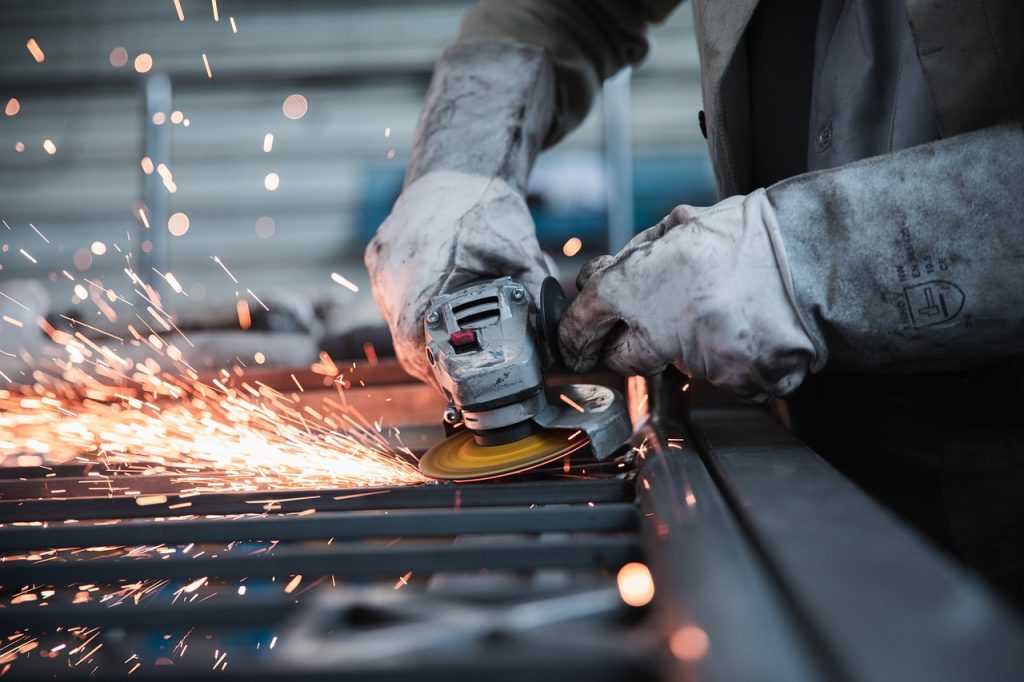Sheet metal fabrication plays a critical role in the modern manufacturing and construction industries. From the creation of everyday consumer goods to complex machinery, this versatile process involves shaping and manipulating flat sheets of metal into desired forms. Given its flexibility, durability, and cost-effectiveness, sheet metal fabrication is often the go-to solution for many industries. Understanding the reasons for its popularity and the various applications it serves helps highlight the value of this manufacturing process.
Benefits of Sheet Metal Fabrication
- Versatility of Material:
One of the primary reasons sheet metal fabrication is widely used is due to the versatility of the materials involved. Common metals like aluminium, steel, copper, and brass can be fabricated into sheets that are then bent, cut, and moulded into a wide array of products. These metals come in different thicknesses, allowing manufacturers to cater to diverse requirements across industries.
- Durability and Strength:
Sheet metal is well known for its durability and strength. Products made from sheet metal can withstand high levels of stress, making them ideal for both indoor and outdoor applications. In industries like automotive, aerospace, and construction, where strength and reliability are paramount, sheet metal fabrication is invaluable.
- Cost-Effectiveness:
Cost efficiency is another significant reason businesses opt for sheet metal fabrication. Compared to other materials like plastics or composites, metal fabrication often offers a more affordable production process, particularly when large quantities are required. Metals like steel and aluminium are abundant and widely available, contributing to lower material costs.
- Precision and Accuracy:
Modern techniques allow for high levels of precision. Using advanced machinery such as laser cutters and automated bending equipment, manufacturers can achieve exact tolerances, ensuring the product matches the design specifications.
- Sustainability:
As environmental concerns grow, the sustainability of materials has become a priority for many industries. Sheet metal, particularly aluminium and steel, can be recycled multiple times without losing its properties. This makes sheet metal fabrication an eco-friendly option compared to other non-recyclable materials.
Applications of Sheet Metal Fabrication
Automotive Industry:
Sheet metal is a cornerstone in the automotive industry, where it is used to manufacture car bodies, panels, engine components, and chassis parts. The strength and malleability of metals like steel and aluminium ensure that vehicles are both sturdy and lightweight, improving fuel efficiency while maintaining safety standards.
- Construction and Architecture:
The construction industry benefits extensively from sheet metal fabrication. Roofing, gutters, ventilation systems, and structural components often rely on fabricated sheet metal for durability and functionality. Aluminium and galvanised steel, for instance, are commonly used for roofing due to their resistance to corrosion and ability to withstand harsh weather conditions.
- Aerospace:
The aerospace industry requires materials that can endure extreme conditions, and sheet metal fabrication fits the bill. Lightweight yet strong materials like aluminium alloys are frequently used in the fabrication of aircraft skins, engine components, and structural elements.
- Electronics and Technology:
In the world of electronics, it is crucial for creating components like enclosures, brackets, and mounts for various devices. Aluminium and stainless steel are often used in the production of casings for computers, servers, and other electronic equipment, providing both protection and aesthetic appeal.
- Medical Equipment:
The medical industry requires precision, hygiene, and durability in its equipment, making it an ideal choice. Stainless steel is commonly used to fabricate surgical instruments, hospital beds, trolleys, and diagnostic equipment.
- Household Appliances:
Everyday household appliances such as ovens, refrigerators, and microwaves rely on sheet metal for their construction. Metal fabrication allows manufacturers to create sleek, durable, and functional products that are resistant to wear and tear.
Summing up, sheet metal fabrication remains an indispensable process across various industries, owing to its versatility, durability, cost-effectiveness, and precision. From automotive parts to household appliances, the applications of sheet metal are numerous and diverse.


